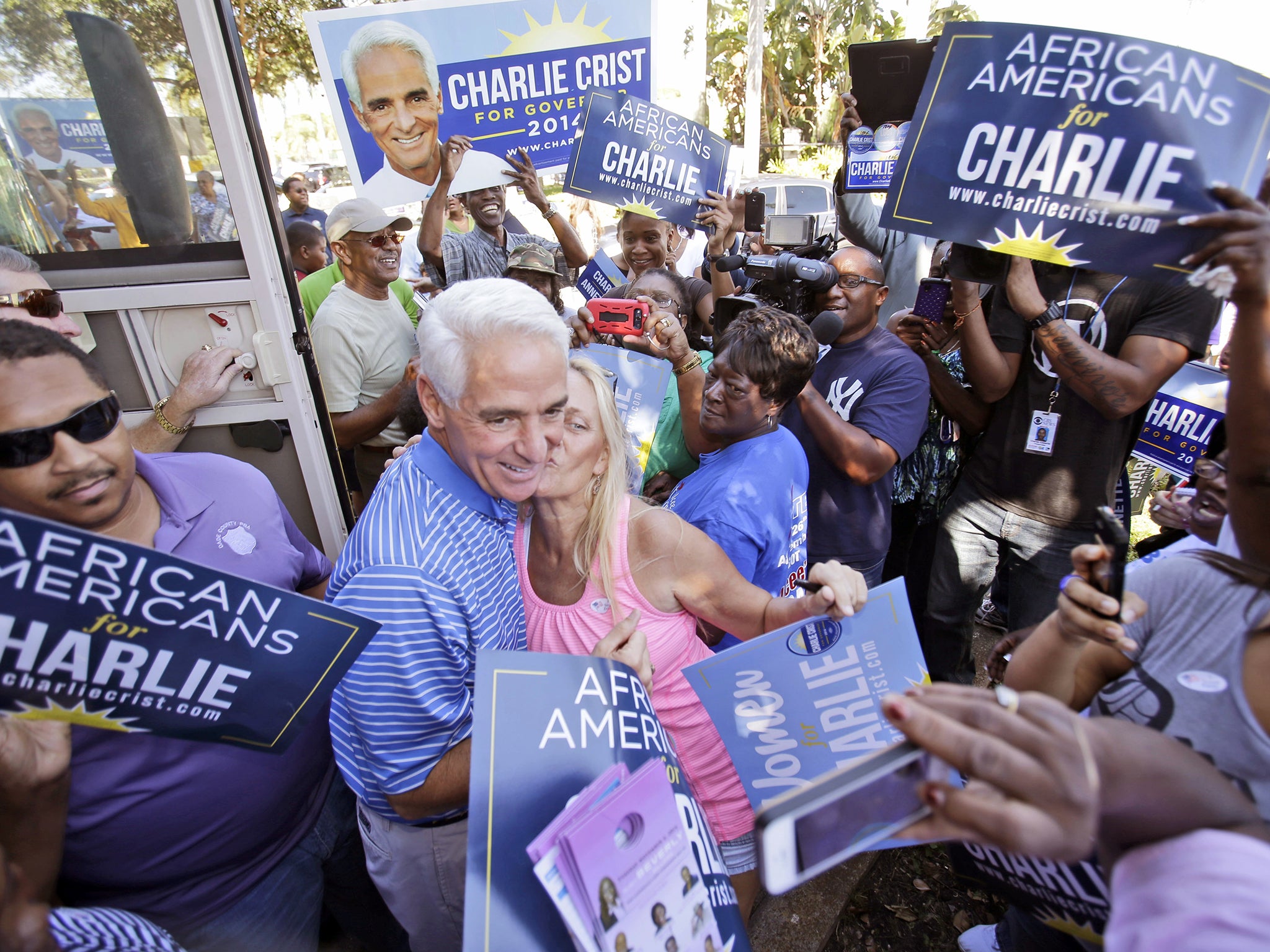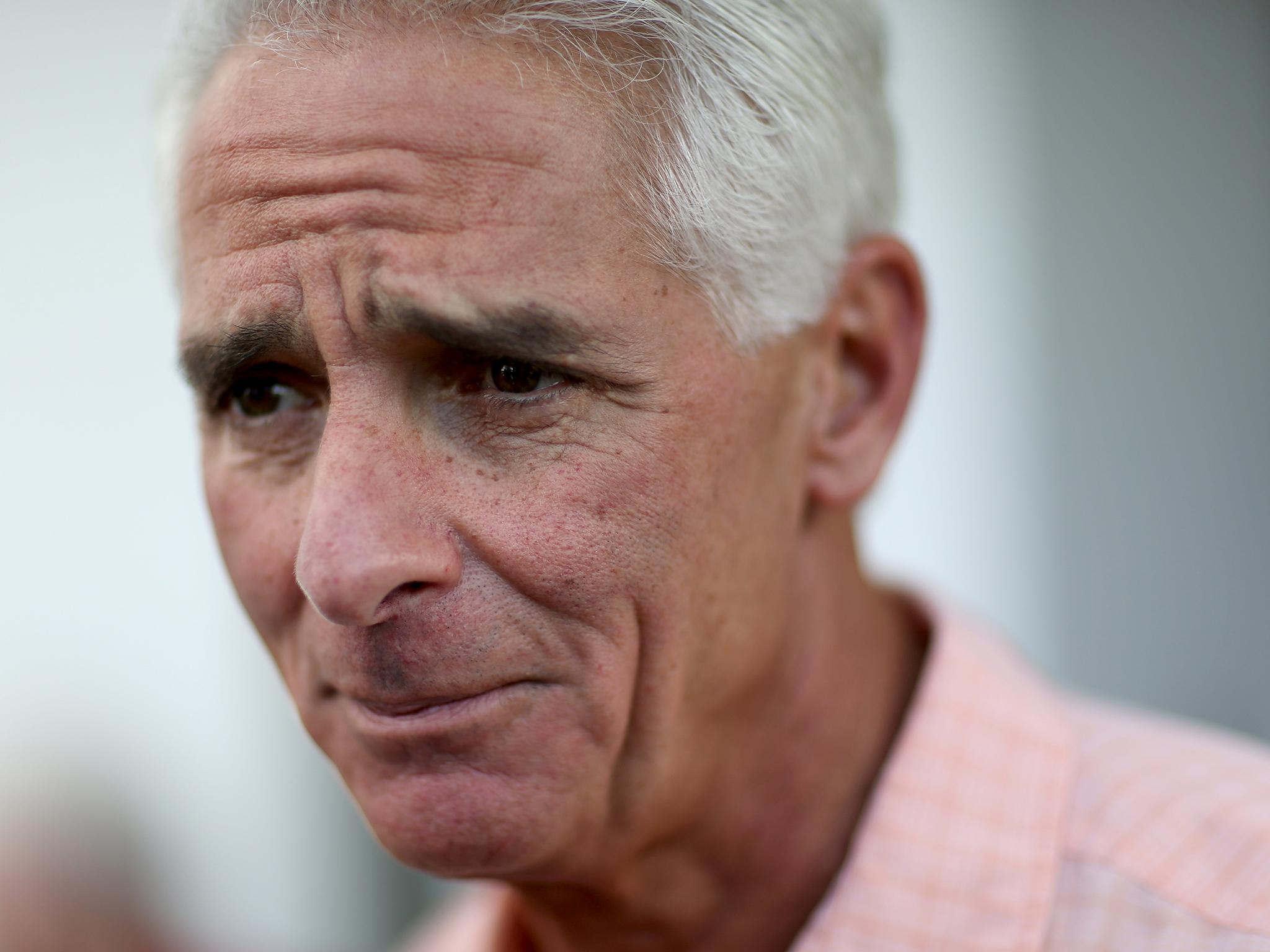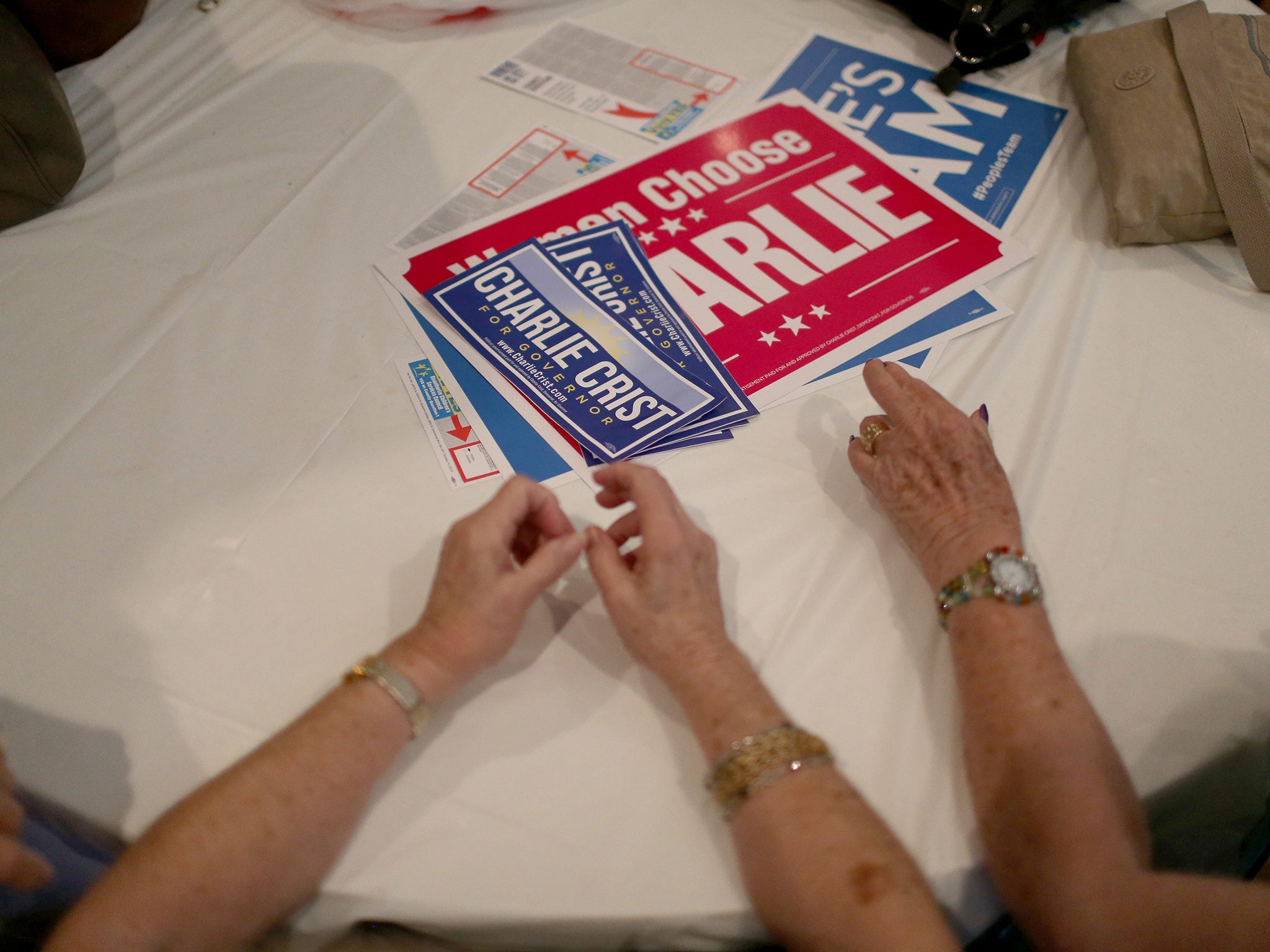US midterm elections: The battle for Florida that could shape White House race
America decides: Record amounts of money have been spent on the highly negative battle for the governorship. David Usborne joins the hate campaign

His back to the glinting waters and dipping pelicans of Sarasota Bay, Charlie Crist wears his usual impish grin and says he smells “something good”.
That, he offers, is the prospect of victory in the race for Florida governor. Or maybe it was a whiff of the sewer that may or may not take him over the line.
Of all the contests in Tuesday’s midterm elections, none have been as rank as this one. It has been the most expensive in the land and the most mean-spirited. A mutual destruction derby of negative advertising has been fuelled by record amounts of money raised by each of the candidates and also poured into the race by outside groups determined to put their ideological stamp on the state.
And it has been personal. Mr Crist has been eviscerated by Rick Scott, the incumbent Republican Governor, for his recent zig-zag past. When Mr Crist held the governor’s mansion from 2007 to 2011 he was a Republican. (Some had expected him to join John McCain’s ultimately doomed presidential ticket in 2008.) In 2012 he ran unsuccessfully for the US Senate as an independent. Now he’s a Democrat.
Mr Scott, whose talents as a retail politician seem scant, has been hammered for the source of his own personal fortune, the stewardship of the country’s largest healthcare company, Columbia/HCA, which came to an end when it was fined $1.7bn (£1.1bn) for defrauding the government of Medicare dollars. Mr Scott repeatedly took the Fifth Amendment when questioned, as Mr Crist relentlessly reminds voters.

But this race has also been rough because it matters more than most. While there are plenty of issues at play that are of genuine interest to Floridians – Mr Crist is in Sarasota to contrast his record on the environment with that of Mr Scott, who when asked if he believed in global warming could only answer, “I’m not a scientist” – for onlookers outside the state this is more about 2016.
While it is widely assumed that Hillary Clinton will seek to be the Democratic nominee in 2016 and that she will have little credible opposition there is also accelerating speculation that Jeb Bush, the brother and son of two former presidents, may be considering seeking the Republican nomination. He is also a former Florida governor. And Florida, of course, is perennially pivotal in presidential years. “There is no path to victory for the Republicans at the presidential level without a victory in Florida,” notes Keith Fitzgerald, a former Democrat in the state house and now a professor of politics in the New College of Florida, adding that Democrats only prevail here when minorities turn out.
“If you have a Democrat governor who is in charge of the electoral process they are going to make sure that those people who can vote do vote. A Republican governor will try to make it more difficult for people to vote.”
Gabriel Hament, who has led the fundraising effort for Mr Crist in Sarasota County, concurs. “This is a proxy race for 2016,” he says, standing outside the Bethlehem Bible Church also in Sarasota where Mr Crist is preparing to make a final pitch to the local black community.
“If Crist doesn’t win here next week, it will be very difficult for Hillary to in 2016.” It is no accident therefore, he adds, that former President Bill Clinton has made repeated visits to Florida to join Mr Crist on the stump.

The battle for Florida reached its nadir when a televised debate was delayed for seven minutes while Mr Scott refused to take the stage because Mr Crist had placed a small electric fan under his podium to stay cool. He eventually gave in and the fan stayed. It goes everywhere with Mr Crist who uses it to great effect reminding voters of Mr Scott’s fan fritz, also known as “fangate”. “Can you believe that?” he asks parishioners in the Bethlehem Church, who whoop and laugh in response. “For real?”
When all the votes are cast, Messrs Scott and Crist will have spent $150m battering one another on the airwaves. That compares with the $12m Jeb Bush spent the first time he was elected here in 1999. Outside contributors have included the political committees controlled by David and Charles Koch, the industrialist brothers from Kansas with a radical libertarian and conservative agenda for Mr Scott and Tom Steyer, a hedge-fund billionaire with a narrow climate change agenda for Mr Crist.
So close is the race, both camps are preparing for the scenario no one in Florida wants to see – a result that separates them by less than half a per cent, which by law would trigger a recount and all the legal manoeuvres that would be sure to follow.
If the Democrats whisper confidence it is because Crist is backed by a sophisticated data-mining effort designed to identify where his support lies and to send in the ground troops to ensure people vote. At the head of it is Jim Messina, who did the same for President Obama in 2012 on the national level (and who when he is not worrying about Florida is advising David Cameron on his re-election hopes in London).
“It’s the Obama model scaled down to a state level,” says Professor Fitzgerald. “The question is can you do this on a smaller scale and will it have the same kind of punch? We will see on Tuesday.”
Join our commenting forum
Join thought-provoking conversations, follow other Independent readers and see their replies
Comments
Bookmark popover
Removed from bookmarks